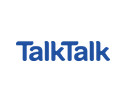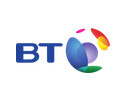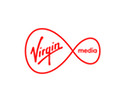
Compare TV & Broadband Packages
Use the table below to compare the latest TV, broadband and phone packages from all major UK providers. When you find the right package for you click on the “apply online” button to sign up. If you prefer to speak to someone on the phone and get help comparing the many different broadband packages available Call Us Now on 0800 049 9749. We’ve partnered with Dixons Carphone to help you find the right package from Sky, Virgin, BT, Talk Talk and Now TV. We compare hundreds of the latest offers to find the perfect package for you. On average, our customers save £322 per year on broadband, digital TV and home phone costs.
Compare TV & Broadband Deals
TV & Broadband Jargon Buster
-
Acceptable Use Policy
TMost contracts used to have a “Fair Use Policy” which was a form of download limit and discouraged consumers from using their home internet to download/upload massive amounts of data. Some still have such policies buried in the small print, even some “unlimited” agreements. Nowadays, however, it is more common to have an “Acceptable Use Policy” which is designed to ensure you use your home internet connection “reasonably” and legally.
-
ADSL
ADLS stands for “Asymmetric Digital Subscriber Line” and is the most common type of broadband found in UK homes. It is an “always on” connection delivered via your home’s telephone line. Download speeds are usually around 17Mb, significantly slower than Fibre broadband. The speeds are limited because the internet access is being provided via existing copper wire telephone lines. The cheapest broadband packages tend to be based on ADSL connections.
-
Bandwidth
Bandwidth refers to the rate at which data can be transferred between 2 points. If you are streaming a high definition movie you will be using up a lot of your available bandwidth which means there is less capacity available for other tasks.
-
Bundle
A bundle refers to a package deal that includes digital TV, broadband and phone services. Bundles are usually cheaper than signing up to 3 different providers and has the added benefit of 1 single monthly cost. By selecting the right bundle offer, you could save over £300 per year.
-
Cable TV
As well as delivering broadband via their own coaxial cable networks, providers like Virgin also use this infrastructure to provide their TV services.
-
Download Limit
If you do not have an “unlimited” package with your internet provider there is likely to be a limit on how much data you can use before you are faced with additional charges or restricted internet access. If your contract includes a monthly download be careful when streaming or downloading movies and TV shows. A high definition movie can be upwards of 2GB these days! If you have a 20GB limit on your contract that won’t get you very far. On the other hand, if you mainly surf the web and check emails this should be more than enough data for you.
-
Download Speed
Your download speed refers to data from the internet is downloaded to your home device. The most common download speed in the UK is 17MB although high-speed connections via Fibre Optics are available with download speeds of up to 300MB. The faster your download speed, the easier it is to stream movies an TV shows online, download large files and load web pages.
-
Freeview/YouView
A free terrestrial TV service in the UK offering access via a set top box or a receiver built into your TV. Freeview offers access to 70 UK TV channels from the likes of the BBC, ITV and Channel 4.
-
Fibre Optic
This is a type of broadband delivered via fibre optic cables and is significantly faster than ADSL broadband. Fibre optic allows data to be transferred faster and enables download speeds of up to 300MB.
-
Firewall
A firewall is a protective barrier between the internet and your computer. Most modern routers and computers have some form of firewall built into them which is used to block malicious data arriving from the internet or being sent out by your computer. A firewall should be used in conjunction with anti-virus software.
-
GB/Gigabyte
1 GB is equal to 1,000 MB/Megabytes. 1 MB is equal to 1,000 KB/Kilobytes. 1 GB is a lot of data!
-
IP Address
Think of our IP address like a post box address. It tells the internet service provider where to send data to. Each device connected to the internet is given an IP address (Internet Protocol Address). The most common IP address is that used by most home routers – 192.168.1.1.
-
IPTV
IPTV delivers TV via your regular broadband connection and telephone line. It is the most common way to receive digital TV in the UK and is used by Sky, BT, Virgin, TalkTalk and Now TV. UK IPTV providers offer very attractive bundle deals including broadband, telephone, digital TV, video on demand and VOIP
-
ISP
Your Internet Service Provider is the company who provides you with your broadband connection and send you a bill every month.
-
MB/Megabit
MB in broadband terms is a way to measure your download speed. The most common internet speed in the UK is 17MB which means you should, in theory, be able to download a 17MB file in 8 seconds.
-
Ofcom
Ofcom is a government body in charge of regulating the telecoms, broadband and TV markets in the UK. One of their roles is to monitor the claims made by Internet Service Providers and comparison sites and to ensure information is provided in a clear, accurate and in the case of comparison sites, impartial manner.
-
Satellite
Your TV is delivered to your home via satellite, a receiver dish on your roof or wall, and a receiver box that connects to your TV. Once the most common way to receive digital TV, new satellite dishes are now a rare site.
-
Streaming
Streaming is a way of watching movies and TV shows or listening to music or podcasts over the internet. If you download a file to watch or listen to, it is stored on your computer and you must wait to download it before consuming it. If you stream, on the other hand, assuming your internet connection is fast enough, you can watch or listen to the content immediately.








